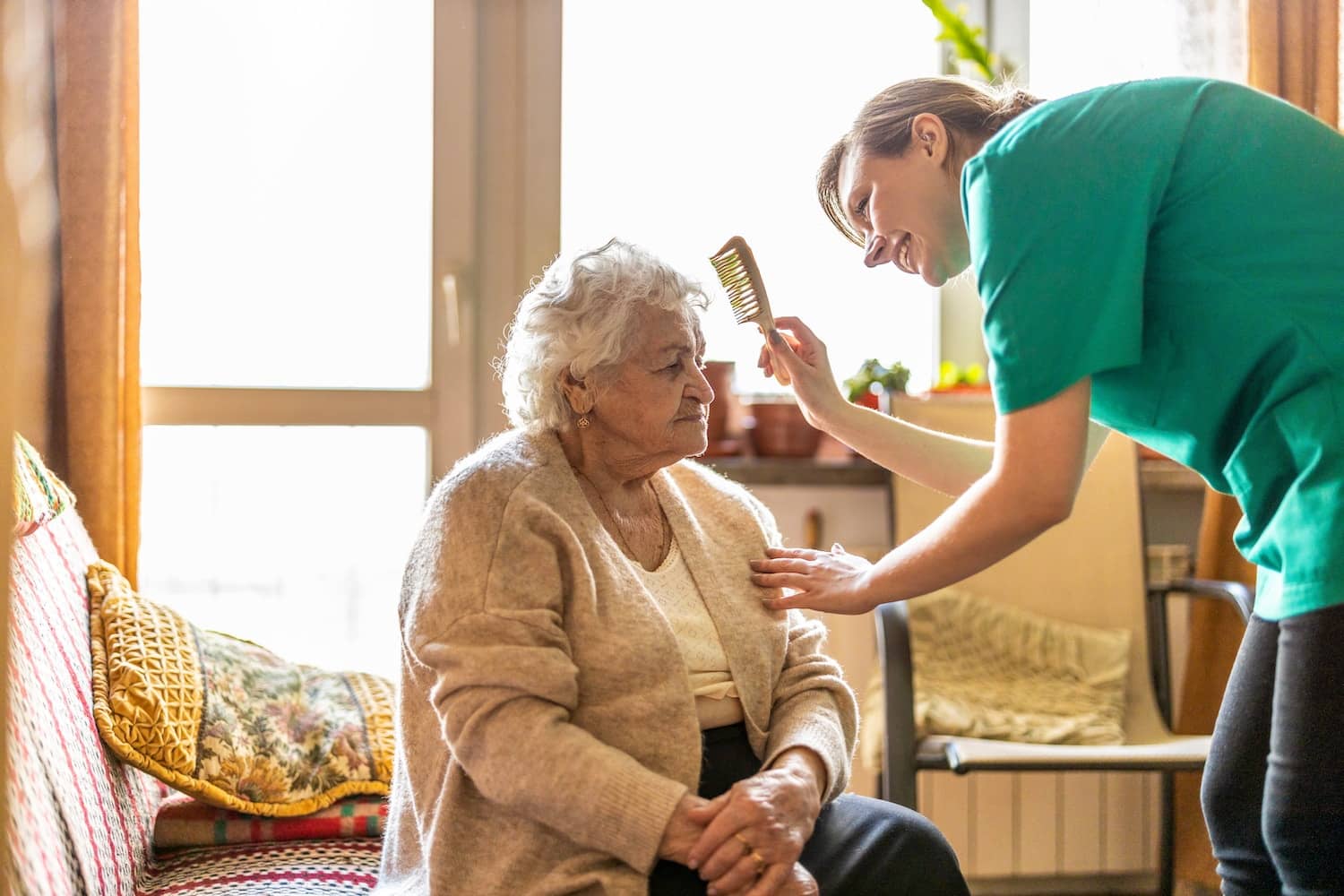Personalized Dementia Care Charlotte: Understanding Your Family member's Special Requirements
Personalized Dementia Care Charlotte: Understanding Your Family member's Special Requirements
Blog Article
How to Give Customized and significant Dementia Care
The stipulation of meaningful and tailored dementia treatment calls for a nuanced understanding of each person's distinct history and choices. Treatment techniques should be customized to involve the person in ways that resonate with their previous experiences, consequently promoting psychological links and improving general wellness.
Comprehending Dementia Uniqueness

Treatment suppliers have to examine cognitive capabilities, moods, and behavior patterns to create tailored care strategies. This may consist of adjusting communication designs, employing familiar regimens, and making use of purposeful activities that reverberate with the individual's previous experiences. As an example, involving a person with a passion for music with musical activities might evoke favorable memories and improve psychological wellness.
Furthermore, understanding uniqueness promotes a compassionate method that appreciates the self-respect and autonomy of those dealing with mental deterioration. It encourages caregivers to pay attention actively, observe behavioral hints, and remain adaptable in their caregiving methods (memory care charlotte). By focusing on individuality, caregivers can not just enhance the lifestyle for those with dementia however likewise develop a much more profound understanding of their special viewpoints, ultimately leading to much more compassionate and effective care
Structure Trust and Rapport
Establishing trust fund and relationship is essential in mental deterioration treatment, as it produces a safe and supportive setting for people affected by the problem. Building these links needs consistent, compassionate communications that prioritize the demands and feelings of the individual. Caregivers need to approach communications with empathy, identifying the unique obstacles dealt with by those with mental deterioration, including amnesia, confusion, and emotional distress.
Effective interaction is vital in this process. Caretakers should use clear, straightforward language and non-verbal cues to communicate understanding and support. Energetic paying attention shows respect and validation, enabling people to share themselves without worry of judgment. In addition, maintaining a calm attitude can help minimize anxiety, promoting a feeling of safety and security.
Developing a regimen can likewise boost trust. Experience with day-to-day activities and caregivers advertises a sense of security, making it possible for people to feel more at ease. It is important to engage with individuals on a personal degree, putting in the time to find out about their biography, preferences, and interests. By doing so, caretakers reinforce the person's identification, advertising dignity and respect, ultimately resulting in stronger, a lot more purposeful connections in the context of dementia treatment.
Tailoring Tasks and Interaction
Involving people with dementia with customized tasks can dramatically improve their high quality of life and foster a much deeper connection in between caregivers and those in their treatment. Personalization is essential, as it acknowledges the one-of-a-kind backgrounds, interests, and capacities of each individual. see this site Tasks ought to be made to promote cognitive features, promote physical activity, and encourage social communication, all while staying satisfying and meeting.
To tailor activities successfully, it is critical to evaluate the individual's choices and cognitive capacities. Furthermore, incorporating components of regimen can supply comfort and stability, permitting individuals to engage with activities much more confidently.
Caretakers can enhance involvement by taking part together with the individuals, promoting an interactive and supportive environment. It is also crucial to remain adaptive and adaptable, readjusting activities as needed based upon the person's energy degrees and mood. Inevitably, meaningful engagement through tailored tasks not just uplifts people with dementia but additionally improves the caregiver connection, advertising mutual pleasure and understanding.
Efficient Interaction Methods
Efficient interaction is important in mental deterioration treatment, as it cultivates a sense of link and understanding in between caregivers and individuals experiencing cognitive decline. Utilizing reliable interaction methods can dramatically enhance the high quality of communications and lower irritation for both events.
To start with, using basic, clear language is necessary. Familiar words and brief sentences assist people understand and respond better. Additionally, maintaining a calmness and favorable tone can produce a comforting setting, which is critical for individuals who may feel nervous or confused.
Non-verbal interaction plays a considerable role also. Caretakers ought to focus on body language, facial expressions, and gestures, as these signs can typically share more than words - memory care facility charlotte. Developing eye contact and using mild touch can additionally strengthen connections and communicate empathy
Active listening is an additional key part. Caretakers should be attentive, permitting individuals to express themselves completely, also if their speech is fragmented or uncertain. This shows regard and encourages a lot more open interaction.
Finally, verifying feelings and experiences is essential. Acknowledging emotions, no matter of their basis actually, can provide comfort and enhance the caregiver-individual partnership, promoting a more encouraging environment.
Sustaining Family Participation
Family involvement plays a considerable role in the general treatment and assistance of people with dementia. Involving relative produces a collaborative setting that enhances the top quality of care, fosters psychological connections, and ensures that the unique requirements of the individual are fulfilled. Family members commonly have invaluable insights into the person's history, preferences, and habits, which can be vital in developing customized treatment techniques.

Additionally, relative can be motivated to join daily treatment tasks, such as taking part in meaningful conversations or aiding with familiar routines. This not only helps suffer the individual's feeling of identity but also strengthens familial bonds. Inevitably, by cultivating an inclusive technique that values household contributions, treatment suppliers can improve the general experience for both people with dementia and their enjoyed ones.
Verdict
In verdict, providing meaningful and individualized mental deterioration treatment requires a thorough understanding of each person's unique history and choices. Collectively, these techniques add to boosted high quality of life for individuals with mental deterioration.
The provision of personalized and purposeful mental deterioration care requires a nuanced understanding of each individual's one-of-a-kind history and preferences. By doing so, caretakers reinforce the person's identity, advertising dignity and respect, ultimately leading to stronger, a lot more purposeful partnerships in the context of mental deterioration care.
Involving people with dementia via customized tasks can top article dramatically improve their quality of life and cultivate a deeper link between caregivers and those in their treatment.Family involvement plays a considerable duty in the general treatment and support of individuals with mental deterioration. Inevitably, by promoting a comprehensive technique that values family payments, care service providers can improve the total experience for both people with dementia and their enjoyed ones.
Report this page